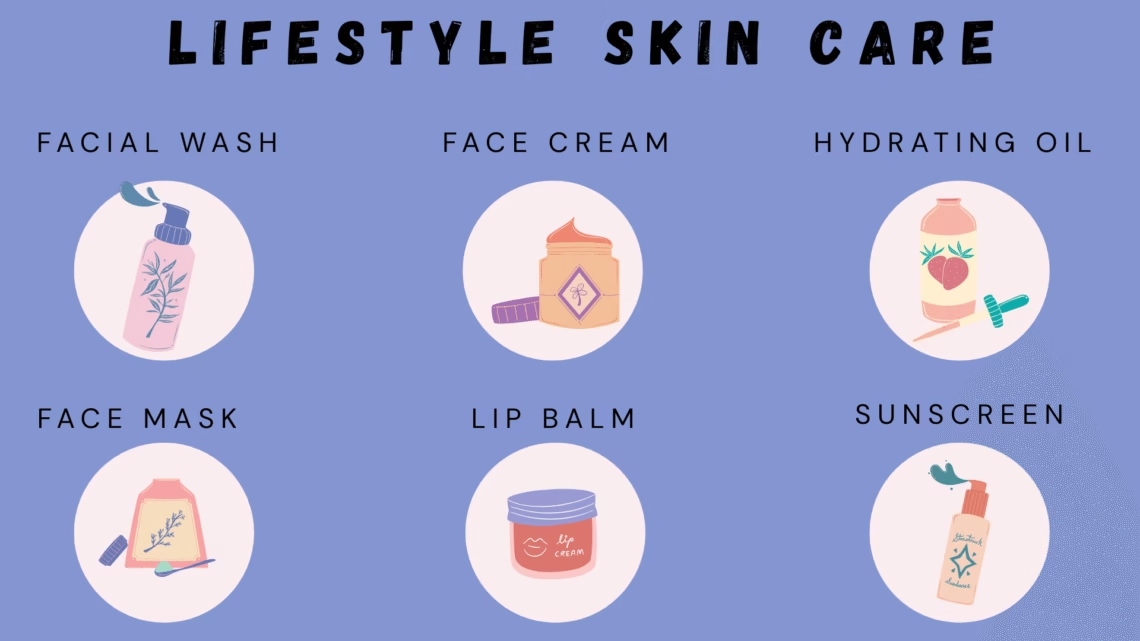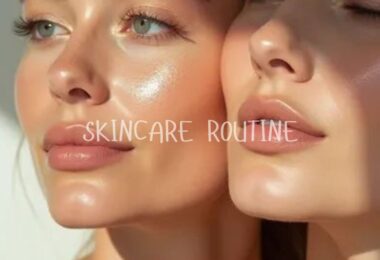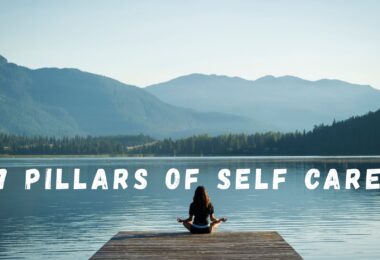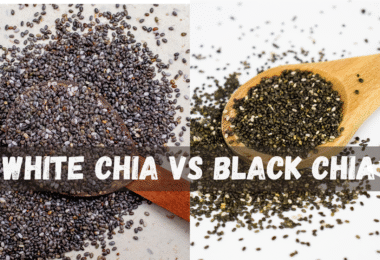Why Lifestyle Skin Care Matters
Lifestyle Skin Care is not just about fancy creams or salon treatments—it’s about the decisions you make regarding food, rest, hydration, and habits.
Modern life is fast-paced, and external products alone can’t save your skin from damage. Stress, unhealthy food, and pollution can accelerate aging. By adopting a lifestyle-based approach, you create long-term improvements that no cream can match.
This guide reveals 10 powerful practices supported by dermatologists and wellness experts.
What Is Lifestyle Skin Care?
Lifestyle Skin Care focuses on holistic daily habits that nourish and protect the skin. It combines external skincare with internal health practices to create sustainable results.
Unlike temporary solutions, this approach strengthens your skin barrier, supports collagen production, and improves hydration naturally.
Core Elements of Lifestyle Skin Care:
- A nutrient-rich diet with antioxidants and healthy fats
- Adequate hydration to maintain elasticity
- Quality sleep for overnight repair
- Exercise for improved blood flow
- Stress control to prevent flare-ups
- Consistent protection from UV rays
10 Best Lifestyle Skin Care Practices
1. Eat a Skin-Friendly Diet
Your skin reflects what you eat. A diet full of sugar and processed foods causes inflammation and acne. On the other hand, nutrient-dense meals protect against aging and damage.
Foods to Include
- Vitamin C-rich foods (oranges, kiwi, bell peppers): Boost collagen, brighten skin tone.
- Sources of vitamin E (sunflower seeds, almonds): Protect against UV rays.
- Omega-3 fatty acids (salmon, flaxseeds): Reduce redness and inflammation.
- Zinc-rich foods (pumpkin seeds, lentils): Heal acne and scars.
- Green vegetables (spinach, kale): Detoxify skin and improve glow.
Foods to Avoid
- Sugary drinks: Cause insulin spikes that worsen acne.
- Deep-fried foods: Increase oiliness and breakouts.
- Excess dairy: Linked to hormonal acne in some studies.
2. Stay Hydrated
Water is a free, natural skincare product. Hydration helps maintain elasticity, prevents dryness, and improves cell function.
Benefits of Hydration
- Flushes toxins from the body.
- Keeps skin plump and reduces fine lines.
- Enhances circulation and nutrient delivery.
How to Stay Consistently Hydrated
- Drink 8–10 glasses of water daily.
- Start your day with warm lemon water.
- Eat hydrating foods like cucumbers, watermelon, and celery.
- Carry a reusable water bottle as a reminder.
3. Sleep Like Your Skin Depends on It
Dermatologists call it “beauty sleep” for a reason. During deep sleep, the body repairs cells and produces collagen.
Effects of Poor Sleep on Skin
- Dark circles under the eyes.
- Early fine lines and wrinkles.
- Increased sensitivity and dull tone.
Tips for Restful Sleep
- Maintain a 7–9 hour sleep schedule.
- Use blackout curtains to block light.
- Avoid blue-light screens an hour before bed.
- Keep your bedroom cool and comfortable.
4. Manage Stress Wisely
Stress hormones like cortisol can worsen acne, eczema, and psoriasis. Long-term stress also slows healing.
Stress-Reducing Activities
- Mindfulness Meditation: Lowers cortisol and improves skin clarity.
- Yoga and Stretching: Boosts circulation and relaxes muscles.
- Breathing Exercises: Reduce tension in minutes.
- Hobbies: Painting, gardening, or reading reduce anxiety.
Lifestyle Skin Care Tip
Make stress management a daily ritual, not a once-in-a-while activity. Even 10 minutes of meditation daily can transform skin health.
5. Exercise Regularly
Movement benefits more than muscles—it nourishes your skin from within.
How Exercise Helps Skin
- Improves blood flow, delivering oxygen and nutrients.
- Reduces stress-related breakouts.
- Helps regulate hormones that affect acne.
- Encourages sweating, which clears clogged pores.
Best Types of Skin-Friendly Exercise
- Cardio: Running, cycling, swimming for circulation.
- Yoga: Reduces stress and boosts glow.
- Strength training: Improves overall metabolism.
Pro tip: Always cleanse your skin after sweating to prevent clogged pores.
6. Protect Your Skin from the Sun
The leading cause of premature aging is UV radiation. Even on cloudy days, 80% of UV rays reach your skin.
Why Sun Protection Matters
- Prevents wrinkles and sunspots.
- Reduces risk of skin cancer.
- Maintains even skin tone.
Effective Sun Protection Habits
- Apply sunscreen with SPF 30 or higher daily.
- Wear protective clothing like hats and long sleeves.
- Reapply sunscreen every 2–3 hours outdoors.
- Use mineral-based sunscreens if you have sensitive skin.
7. Maintain a Consistent Skincare Routine
Consistency is key in Lifestyle Skin Care. A minimal but steady routine works better than irregular, complicated regimens.
Morning Routine
- Cleanser: Removes overnight oil.
- Moisturizer: Locks in hydration.
- Sunscreen: Protects from UV damage.
Evening Routine
- Cleanser: Clears pollution and makeup.
- Toner or Serum: Restores pH balance and adds nutrients.
- Night Cream or Oil: Repairs skin overnight.
Pro Tip: Don’t change products too often. Give new products at least 6 weeks to show results.
8. Limit Harmful Habits
Some habits silently harm your skin. Quitting them is as important as applying moisturizer.
Smoking
- Narrows blood vessels, cutting oxygen supply.
- Causes early wrinkles, especially around the mouth.
- Reduces skin’s ability to heal wounds.
Excessive Alcohol
- Dehydrates skin, making it flaky and dull.
- Worsens rosacea and puffiness.
- Reduces vitamin absorption.
How to Replace These Habits
- Replace smoking with sugar-free gum or tea.
- Switch alcohol for mocktails or sparkling water.
- Focus on nutrient-rich snacks instead of late-night junk food.
9. Keep Your Environment Clean
Pollution and toxins in your environment directly affect skin health.
Effects of Pollution on Skin
- Clogs pores and causes breakouts.
- Speeds up collagen breakdown, leading to aging.
- Increases oxidative stress, dulling skin tone.
How to Minimize Damage
- Cleanse your face after outdoor exposure.
- Use antioxidant-rich skincare products.
- Install an air purifier at home if possible.
- Wash pillowcases and towels regularly.
10. Listen to Your Skin
No single routine works for everyone. Your skin has unique needs depending on age, hormones, and environment.
How to Understand Your Skin’s Needs
- Keep a journal of products used and skin reactions.
- Notice seasonal changes—dry in winter, oily in summer.
- Consult a dermatologist for persistent issues.
Pro Tip: Don’t chase trends. Build your routine around what your skin responds well to.
Lifestyle Skin Care vs. Traditional Skincare
| Aspect | Lifestyle Skin Care | Traditional Skincare |
| Approach | Combines diet, sleep, exercise, skincare | Relies mostly on external products |
| Focus | Prevention and long-term health | Quick fixes |
| Cost | Low, often free | Can be expensive |
| Results | Sustainable and natural | Temporary improvements |
Common Mistakes in Lifestyle Skin Care
- Skipping sunscreen indoors.
- Using harsh scrubs daily.
- Sleeping with makeup on.
- Drinking soda instead of water.
- Ignoring stress management.
Expert Insights: Science Behind Lifestyle Skin Care
- Harvard Health: Stress worsens acne and eczema.
- American Academy of Dermatology: Sunscreen prevents 80% of visible aging.
- Mayo Clinic: Diet strongly impacts acne and overall skin clarity.
These observations demonstrate that skincare is more than just taking care of your skin.
Actionable Tips to Start Today
- Drink a glass of water before each meal.
- Add one extra vegetable to your plate daily.
- Go to bed 30 minutes earlier.
- Meditate for five minutes before sleep.
- Apply sunscreen even when indoors.
Conclusion:
Healthy skin is not built overnight. Lifestyle Skin Care creates a foundation for glowing, youthful skin by focusing on habits, not just products.
By eating clean, sleeping well, exercising, and protecting your skin, you invest in long-term health. Small consistent changes today guarantee radiant skin tomorrow.
FAQs
1. What is Lifestyle Skin Care?
Lifestyle Skin Care refers to skincare practices that combine daily habits such as diet, sleep, hydration, exercise, and stress management with topical treatments. It focuses on long-term improvements rather than quick fixes.
2. How does diet affect Lifestyle Skin Care?
Your diet plays a crucial role. Antioxidant-rich foods like berries, nuts, and leafy greens fight skin damage. Omega-3 fatty acids reduce inflammation, while excess sugar and processed foods can trigger acne and dullness.
3. Can stress really damage my skin?
Yes. Stress increases cortisol, which leads to excess oil production, acne, eczema flare-ups, and faster aging. Stress management techniques like meditation and yoga are essential for healthy skin.
Call to Action
Which Lifestyle Skin Care habit will you adopt today? Comment below and share this article with friends who want glowing skin!








Leave a Comment